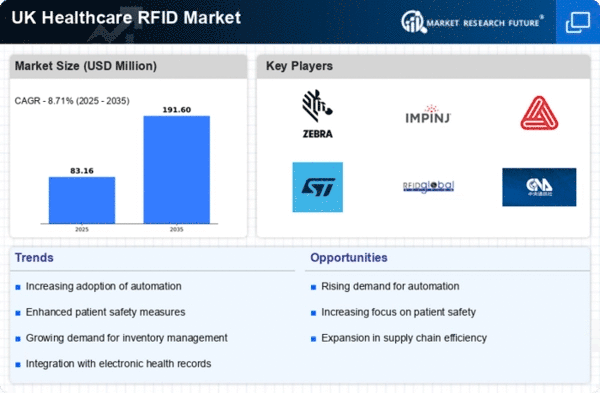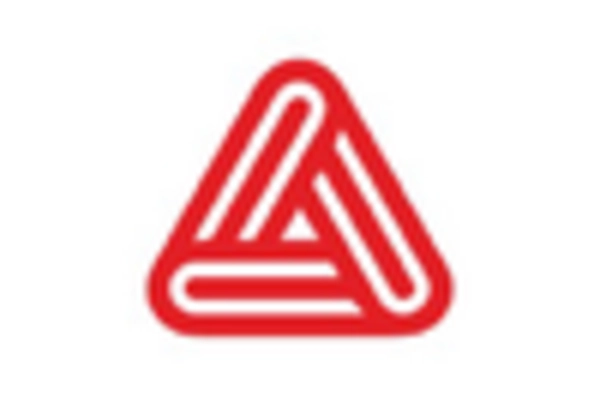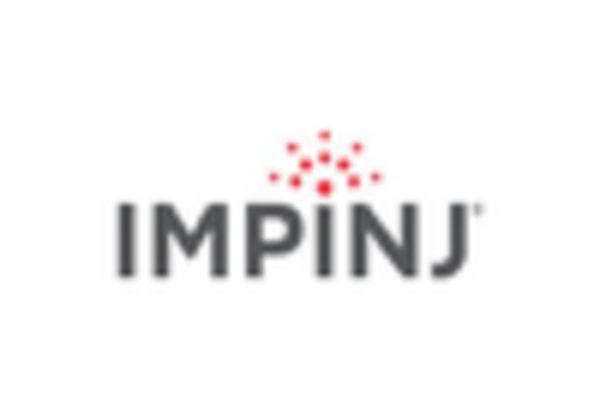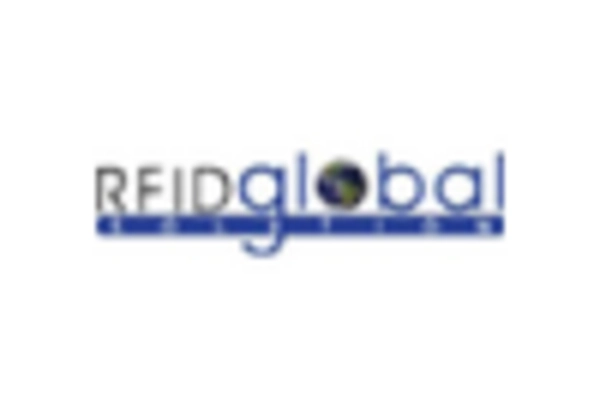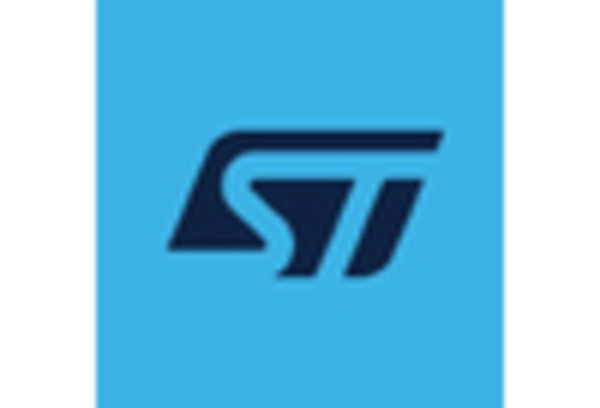Focus on Patient-Centric Care
The shift towards patient-centric care is influencing the healthcare rfid market significantly. Healthcare providers are increasingly prioritizing patient experiences and outcomes, which necessitates the use of advanced tracking systems. RFID technology facilitates better patient management by ensuring that the right treatments and medications are administered at the right times. This focus on enhancing patient care can lead to improved satisfaction rates and better health outcomes, thereby driving the demand for RFID solutions in healthcare settings. The healthcare rfid market is likely to see a corresponding increase in adoption rates due to this focus on enhancing patient care.
Regulatory Compliance and Standards
Regulatory compliance is a significant driver for the healthcare rfid market, particularly in the UK. The National Health Service (NHS) and other regulatory bodies emphasize the need for accurate tracking of medical devices and pharmaceuticals. Compliance with these regulations ensures patient safety and reduces the risk of errors. The healthcare rfid market is likely to benefit from the increasing scrutiny on supply chain transparency, as RFID technology provides real-time data that aids in meeting these standards. This adherence to regulations can potentially enhance the credibility and reliability of healthcare providers.
Cost Reduction in Healthcare Operations
Cost reduction remains a critical driver for the healthcare rfid market. As healthcare costs continue to rise, providers are seeking innovative solutions to manage expenses effectively. RFID technology offers a means to track assets, reduce inventory losses, and minimize manual errors, all of which contribute to lower operational costs. Studies suggest that hospitals implementing RFID systems can save up to £1 million annually through improved asset management and reduced waste. This financial incentive is likely to encourage more healthcare facilities to adopt RFID solutions, further propelling the growth of the healthcare rfid market.
Increased Demand for Operational Efficiency
The healthcare rfid market is experiencing a surge in demand for operational efficiency within healthcare facilities. As hospitals and clinics strive to streamline their processes, RFID technology emerges as a pivotal solution. By automating inventory management and tracking assets, healthcare providers can reduce waste and improve resource allocation. Reports indicate that implementing RFID can lead to a reduction in operational costs by up to 30%. This efficiency not only enhances patient care but also optimizes staff productivity, making it a crucial driver in the healthcare rfid market.
Technological Advancements in RFID Solutions
Technological advancements are propelling the healthcare rfid market forward. Innovations in RFID technology, such as the development of smaller, more efficient tags and enhanced data processing capabilities, are making these solutions more accessible and effective. The integration of RFID with cloud computing and artificial intelligence is particularly noteworthy, as it allows for sophisticated data analytics and improved decision-making processes. As these technologies evolve, the healthcare rfid market is expected to expand, with projections indicating a growth rate of approximately 15% annually over the next five years.


